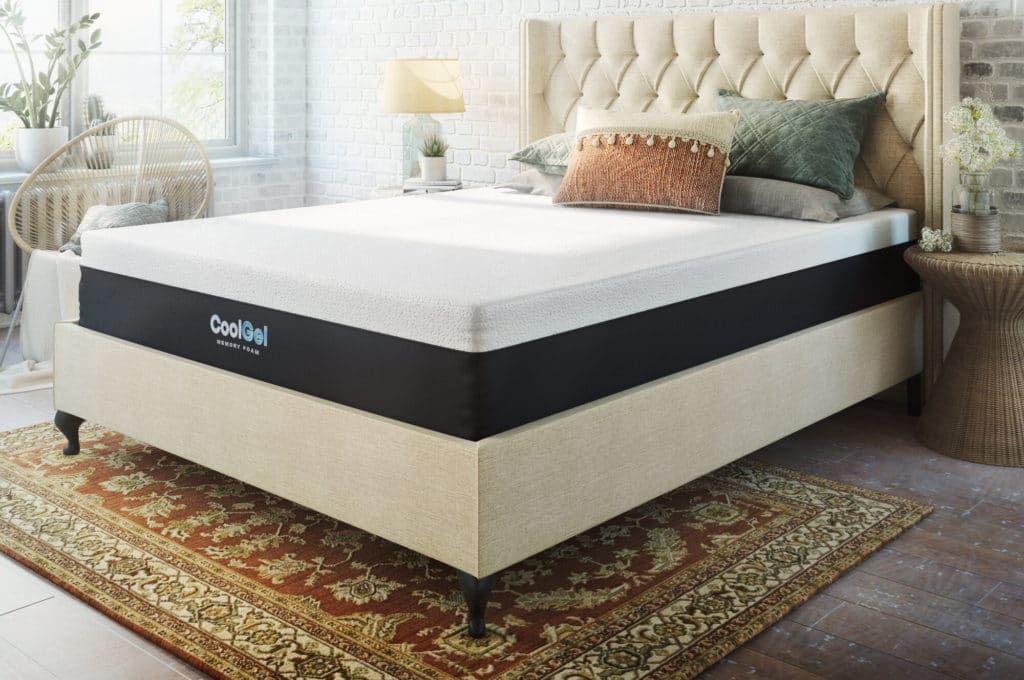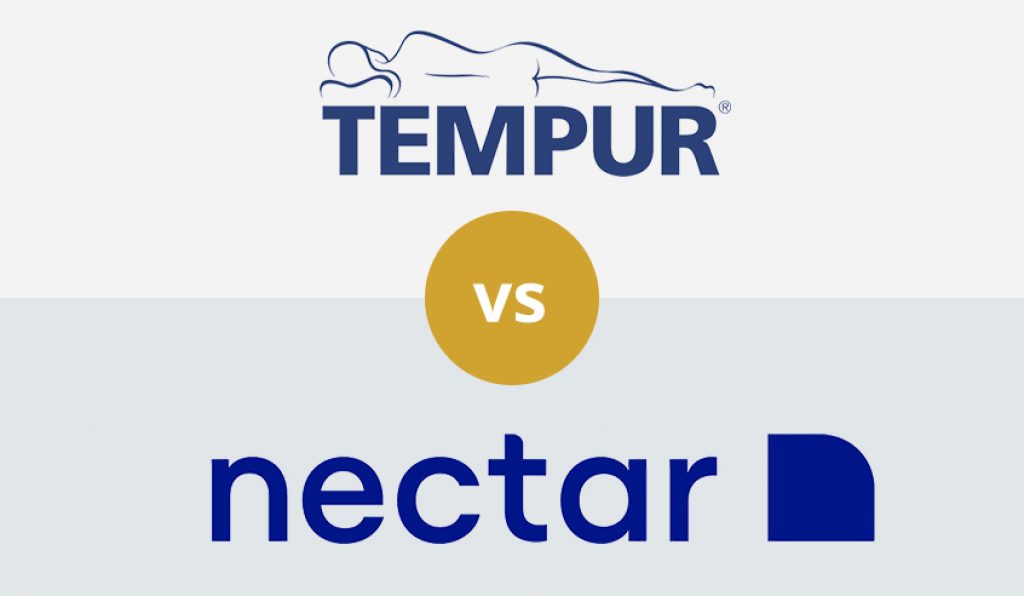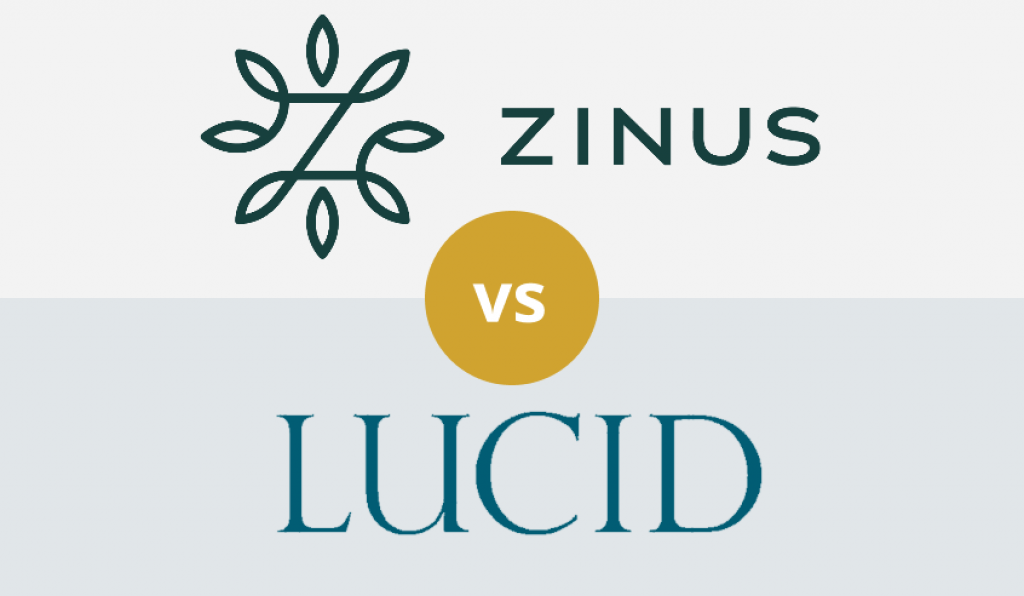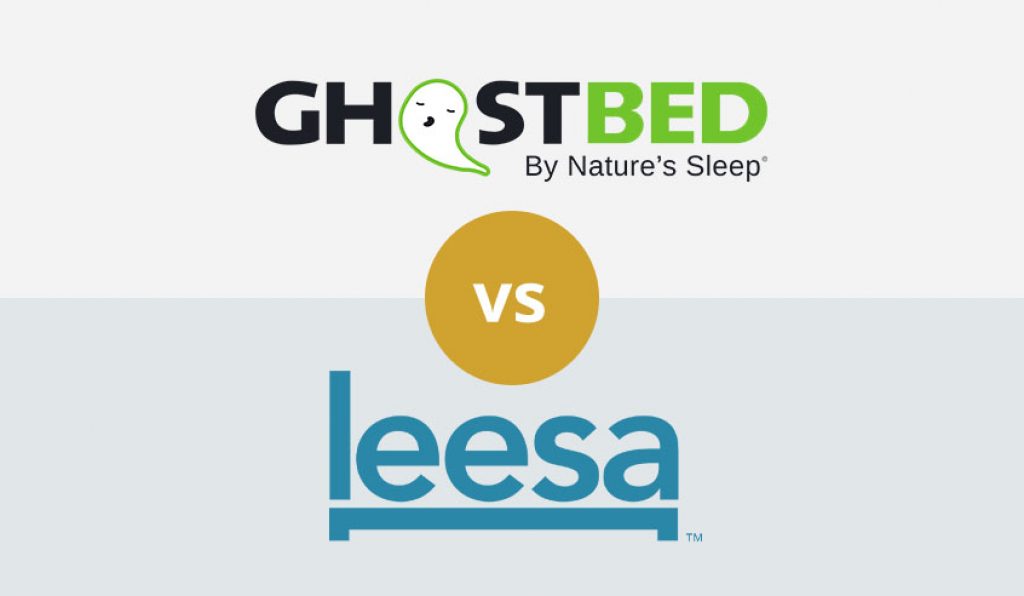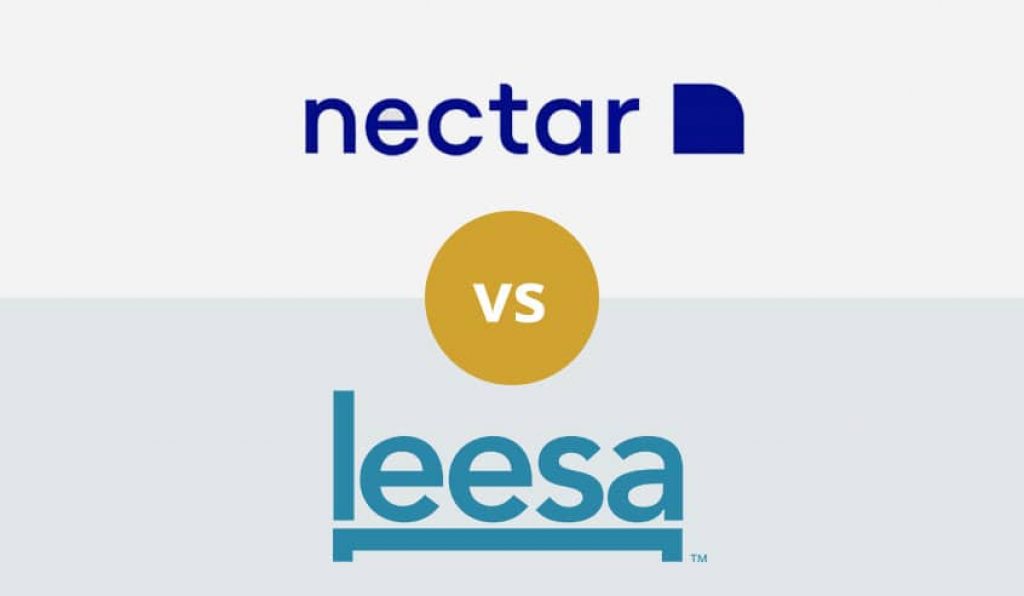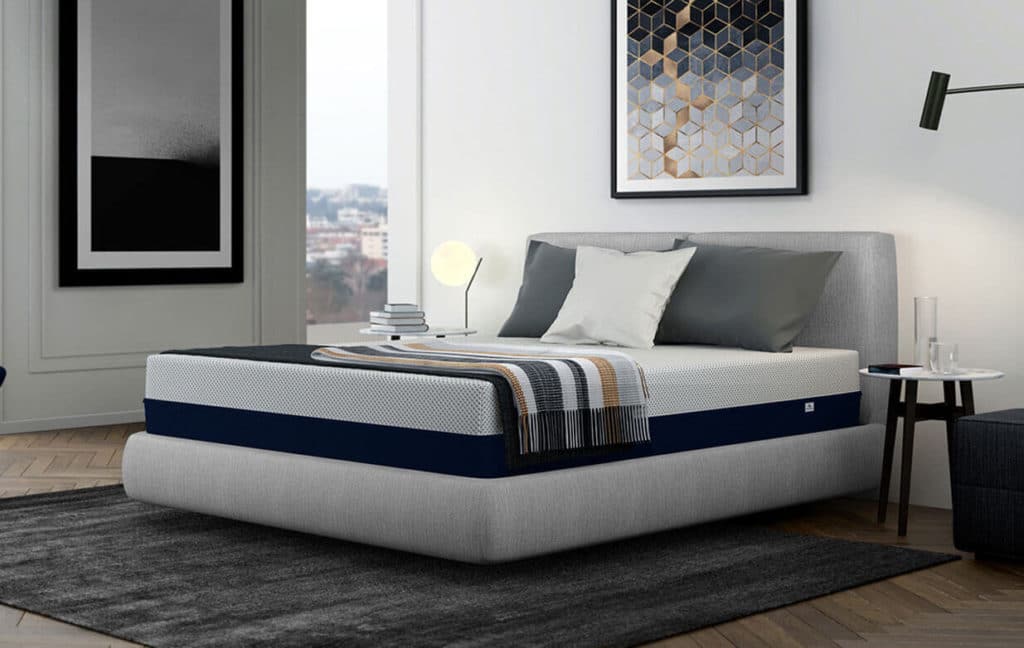

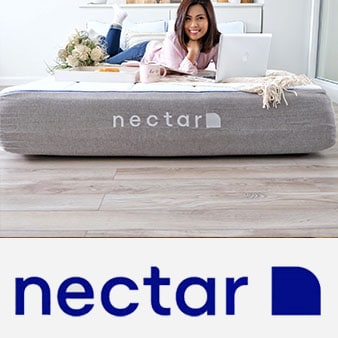
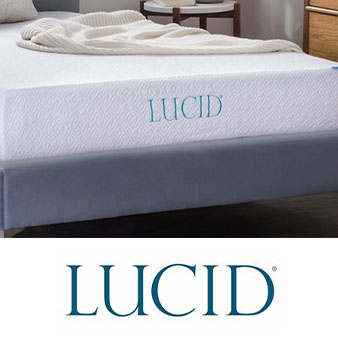
Where mattresses are concerned, Nectar vs Lucid is a common argument, but overall both beds seem to be enjoying similar levels of popularity. This, however, makes it harder to choose if you’ve narrowed it down to these last two options. While both mattresses have memory foam as one of their component materials, the layer composition is different, and that makes the experience of sleeping on either mattress unique. These disparities in structure result in variances in the size and weight of the mattress. Another critical distinction between the two is the price, with one being almost three times the cost of the other. As such, you have to wonder who wins the Lucid vs Nectar fight and if at all, the difference in pricing is worth it.
Lucid has been making mattresses since 2010 with the focus being mostly on the consumer. As such customers have a more comprehensive array of options to choose from which include plush mattresses and their firmer counterparts. They also try to cater to the needs of different types of sleepers. Nectar has fewer years of experience in the business but makes up for that with competitive prices and high-quality materials.
Both mattresses on review have the same firmness rating. While their comfort layers all feature memory foam, their support layers differ in construction with one being polyfoam while the other is high-density support foam. The price tag is where we notice the most significant difference, and the lucid mattress is noticeably cheaper in this regard. However, this significantly affects the sleep trial and warranty terms offered by the Lucid manufacturer.
| Nectar | LUCID |
|
|
| VIEW ON AMAZON | VIEW ON AMAZON |
| Nectar | LUCID | |
| Type | Foam | Foam |
| Firmness | Medium firm (6.5) | Medium-Firm (6.5) |
| Thickness | 11″ | 10″ |
| Weight | 74 lbs. | 55 lbs |
| Sleep trial | 365 nights | – |
| Warranty | Lifetime | 10 years |
| Price (Queen) | $699 | $240 |
| Certification | CertiPUR-US | Certi-PUR-US |
| Nectar | LUCID | |
| Support core | 6″ HD Polyfoam | 7.5″ High-Density Support Foam |
| Comfort layers | 1″ Quilted Gel Memory Foam1″ 4 PCF Gel Memory Foam 3″ 3.5 PCF Memory Foam |
2.5″ Gel Memory Foam |
| Cover | Cotton and Tencel® Lyocell | Tencel Blend |
As is common in the construction of foam mattresses, you get a support core which forms the bulk of the mattress. The support core in the Nectar mattress makes up 6 of the 11 inches of the bed and is comprised of HD Polyfoam. On the other hand, the Lucid is made up of 75% high-density support foam, while the additional 25% is gel memory foam. Also, where the Nectar bed is concerned, the comfort layer is divided into three parts, all using different blends of memory foam.
Due to more layers, the Nectar option is heavier by about 19 lbs. Nevertheless, while the weight of the mattress is essential, it rarely is a determining factor in whether a person buys a mattress or not. Here are some of the deciding factors.
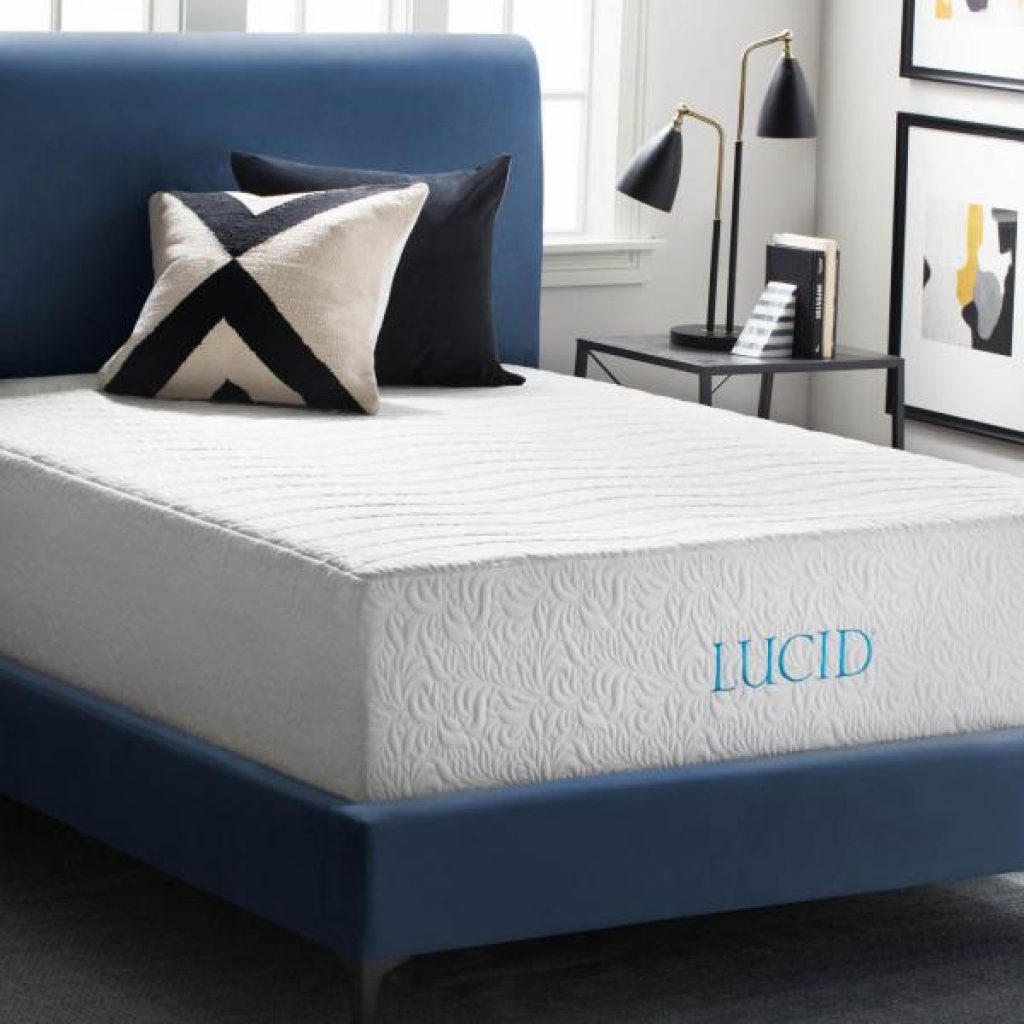
Beds come in different firmness ratings with medium firm being the standard. This allows the bed to conform to the body shape of the individual. For side sleepers, this is of great benefit as it enables their spines to be perfectly aligned. They are thus less likely to suffer spine injuries. Both the Nectar and the Lucid mattresses perform similar in this regard, and despite the differences in composition, they rank the same at 6.5.
The Nectar mattress incorporates a few features for temperature regulation. After all, it can get quite uncomfortable when you break into a cold sweat at night due to unbearable heat. Tencel fabric on the mattress works to wick away heat and moisture and directly below that there is the quilted memory foam. The foam encourages airflow and circulation, helping to keep temperatures stable.
On the other hand, the Lucid mattress covers the bed with Tencel in addition to a ventilated body.
Due to the adaptive nature of the memory foam for both mattresses movement stays isolated, thus making it difficult to bother sleeping partners. Again the nectar mattress pulls one over its counterpart by incorporating more memory foam layers.
The Nectar and Lucid mattresses have support core components that stop the sleeper from sinking deeper into the bed. Therefore these parts are not responsive at all. However, the top layers that mostly consist of memory foam should have limited responsiveness. The mattresses are consequently not able to recover fast from someone getting off them, and this applies to both options. As such, both beds perform below par in this regard.

Being foam mattresses both the Nectar and the Lucid mattresses don’t offer much in the way of edge support with the Nectar option edging slightly ahead in performance. However, this difference is small enough to be considered negligible and thus is likely not to be a decider when choosing a bed.
If you’ve previously purchased a foam mattress, especially one that comes in a box then you know to expect some odor. Both options on review will require you to give some off-gassing leeway for the smell to dissipate. As such, keep whichever mattress you choose in a well-ventilated space for a few days, and you should be good to go with any of these two beds.
| SLEEP POSITION | Light sleepers
(less than 130 lbs) |
Average sleepers
(130 lbs to 230 lbs) |
Heavy sleepers
(greater than 230 lbs) |
| Nectar | |||
| Side | 8 | 8 | 9 |
| Back | 9 | 9 | 10 |
| Stomach | 7 | 9 | 9 |
| LUCID | |||
| Side | 7 | 9 | 9 |
| Back | 9 | 10 | 10 |
| Stomach | 8 | 9 | 9* |
*Out of 10
Across the weight demographic, both the beds mentioned seem to be performing very well. However, light sleepers seem to hold the opinion that both mattresses don’t perform well in certain sleeping positions. The Nectar bed performs lowest when you sleep on your stomach while the same is true for Lucid users who sleep on their side.
| SIZE | Nectar | LUCID |
| Twin | $500 | $221 |
| Twin XL | $550 | $170 |
| Full | $700 | $199 |
| Queen | $800 | $240 |
| King | $800 | $304 |
| California King | $900 | $350 |
| Sleep trial | Warranty and refund | Delivery | |
| Nectar | 365 days | Lifetime warranty full refund |
Within the U.S. |
| LUCID | – | 10 years | Within the U.S. |
It’s generally good practice to let buyers test products before they decide on whether they are going to keep them. Mattress manufacturers try to abide by this unspoken rule except for Lucid. However, given how affordable the Lucid mattress is, buyers might be willing to let this slide.
Warranty terms are pretty straightforward. Nectar still maintains its lead by offering a lifetime warranty to the original buyer. Lucid provides a 10-year coverage, which is standard for a lot of high caliber foam mattresses.
The beds on review are mostly available to the U.S market with delivery being offered within the country. If you want one of these mattresses and are living outside the U.S, you are going to have to facilitate transport.
Pros
Cons
Pros
Cons
Both these products have their strong points with the Nectar excelling in almost every area. On the other hand, Lucid makes up the difference by being affordable. As a buyer, you have probably picked out which of these two models suits you better. Also, you are more aware of your needs than we are? Once you make your purchase, you can comment below and tell us about your experience with the product. That could end up helping potential buyers out of a dilemma. So which one will you pick?
